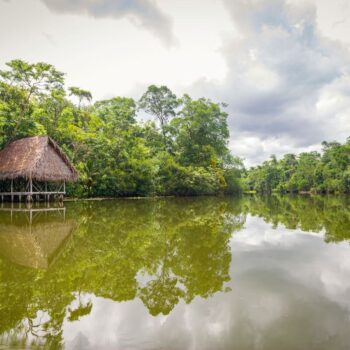Following the publication of Jonathon Porritt’s book ‘Capitalism as if the world matters’ and his associated Open Democracy article“As if the world matters”: reconciling sustainable development and capitalism, E3G Founding Directors John Ashton and Tom Burke contributed articles to the Open Democracy debate in response.
Tom Burke’s article follows here below. John Ashton’s article is published here.
Conserving capitalists
Tom Burke
Capitalism is the process of liberating capital to pursue opportunity. From about the middle of the 18th century there was a debate about how to make the economy grow. As the industrial revolution gathered pace under the stimulus of the Napoleonic wars and the subsequent prolonged period of peace the answer became clear. If individuals are freed to pursue their own self-interest, the interests of all would be enhanced as the economy grew. As this liberal doctrine gained hold, economies did indeed grow rapidly.
But economic growth corrodes social ligatures. The complex, multi-dimensional relationships of relatively stable communities are replaced in the creative destruction of capitalism by the simpler, transactional relationships of the cash economy. Cultural bonds, with their complex patterns of mutual rights and obligations, are replaced by economic bonds based simply on the ability to pay.
Margaret Thatcher never understood that you cannot have both increasing economic opportunity and a return to Victorian values because of the corrosive effect of rapid economic growth on culturally rooted rules systems. In the 19th century, rapid economic growth led then in Europe, as it does now globally, to very rapid social change. This social change, unmediated by any amelioration of its impacts on the welfare of large numbers of people, led to growing political instability. This threatened to undermine the economic growth driving the social changes. By 1848 Marx had already written the Communist Manifesto.
By the middle of the 19th century, as the dynamics of what we would now call a negative feedback loop became apparent, a new argument began. This was about how to maintain the social conditions for the economy to continue growing. The answer that emerged over the next century was that some of the proceeds of that economic growth must be invested in maintaining the social conditions for it to continue.
In the 1880s, the German chancellor Otto von Bismarck had already laid the foundations of what we would now call the welfare state in Germany. By the middle of the 20th century, the argument was over. All of the largest and fastest growing economies invested a significant amount of the proceeds of that growth in health, education and social security in order to maintain the social conditions for its continuation. Economic development became the primary focus of public policy.
This occurred just as the population of the planet was about to explode, tripling from about 2 billion to more than 6 billion in a single lifetime. By the beginning of the last quarter of the 20th century, a new debate had begun. Rapid economic development was precipitating environmental changes that threatened to undermine the ecological foundations of the economy – the oceans, atmosphere, freshwaters, forestlands, croplands and rangelands that supply everything in our economy not supplied by fossil fuels and non-fossil minerals.
If the productivity of those foundations is undermined, the eventual result is a malign and self-defeating cycle: the economy is weakened, creating political instability that further blocks the ability of the economy to grow – and economies which do not grow cannot support capitalism.
Making the transition to sustainable development means learning to invest some of the proceeds of our accelerating economic development in maintaining the environmental conditions for its continuation. We have barely begun. This year Britain will spend some £250 billion on maintaining the social conditions for economic growth, about five times what we will spend on internal and external security. Alongside, we will spend about £7.5 billion on the environment – 3% of what we are spending on maintaining the social conditions for growth.
Unless we can rapidly redress this imbalance, the landscape of opportunity for capital to pursue will diminish rapidly as the 21st century progresses. Delivering sustainable development – that is, economic growth that maintains both the social and environmental conditions for its continuation – is a necessary condition for the survival of capitalism. It is time that both environmentalists and capitalists discovered their mutual interest in accelerating the transition.


